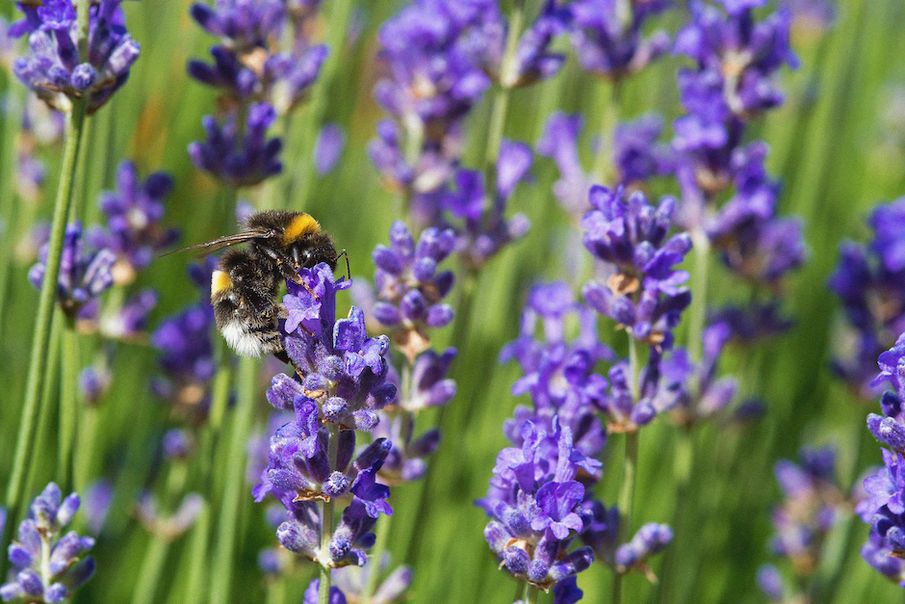With heatwaves increasing, we humans can seek out shade, slap on the sunscreen, keep hydrated, and even crank up a fan for a refreshing cool-down. But what about wildlife?
While summer days might conjure up images of butterflies dancing through the air, being woken to birdsong just beyond our windows, or the smell of freshly blooming flowers as a bee gently hums between their petals, the reality is that summer can be a harsh environment for critters out in the wild.
As temperatures soar, constant reports of ‘hottest day of the year’ hit the headlines, and summer 2022 meant the UK hit 40oC for the first time on record, our natural world can take a hit as it tries to survive and acclimatise to the dramatic heat and lack of rainfall. While grass turns to straw, and vegetation wilts under the glare of the sun, wildlife can struggle with the limited food sources, dehydration, and heat exhaustion.
If you’re wondering what you can do to help out, fortunately that are several simple steps you can take to support local wildlife through the summer months, that could make a world of difference:
1. Provide water sources
As natural offerings dry up, leaving out dishes of fresh water can be a life-saver for many animals, including hedgehogs, birds, and bees. This could be as simple as leaving out a shallow dish you top up regularly, ideally with a few stones placed in the bottom to help bugs or butterflies find their way out if they accidentally fall in. Alternatively, you might want to invest in a more permanent option, such as a bird bath, which allows feathered friends to cool down, and also makes for great viewing to help you connect with nature from your own home.
. Don’t give milk to hedgehogs. This is a common misconception, but can harm their digestive systems.
. Steer clear of salt for birds. Avoid anything salted when leaving them out treats, as this is extremely toxic to them – also be aware of this when trying to clear ice from birdbaths in winter!
. Sweetened or salted nuts are a no-go for squirrels. Anything processed isn’t ideal, but walnuts and almonds should be OK.
2. Offer up meaty pet foods
When the ground hardens in the sun, hedgehogs and birds in particular can struggle without their usual feast of worms. A handy replacement can be moist meaty cat or dog food you may already have in your cupboards. Simply leaving out a dish with a few spoonfuls can help to replenish their energy stores.
3. Nurture your nectar flowers and berry bushes
Protecting and tending to existing food natural food sources is an excellent way to care for wildlife. Plants that produce edible berries or have nectar can be an essential source for butterflies, birds, and pollinators, so keep them watered where you can – these include lavender, marjoram, and honeysuckle. You may also consider planting some if this is something your outdoor space is lacking!
4. Create shady spaces
Respite from the dazzling sun can be essential, so consider ways to introduce some shade into your garden. This could be by cutting back on pruning, to let any bushes or plants grow more freely, or building a log or stone pile for a makeshift insect hotel. Additionally, did you know that shade from trees can be up to 10 degrees cooler than direct sunlight so, if your space allows, adding some into your garden could be a welcome reprieve for a creature in need.
5. Tend to your ponds
While some plant life is good for your aquatic friends, be sure not to let it take over their spaces. Clear out weeds, try to keep algae at bay, and regularly top the water level up. Also think about if there are sufficient shady spots inside, as many amphibians prefer cooler conditions.
Hedgehogs: As naturally nocturnal creatures, it’s not normal to see them out in daylight. If you spot a hedgehog ‘sunbathing’, it’s probably in need of help. Wearing gardening gloves, try to place it gently in a cardboard box, taking it to some shade, and offering some water and pet food. Then, you can call a local rescue centre, or the British Hedgehog Preservation Society (01584 890801) for support.
Bees: Exhaustion can overcome bees, and leave them crawling along the ground. If you spot one stranded, or struggling to move, some sugar with water can give it a boost of energy to get back to its hive.
Birds: Without the ability to sweat, birds can overheat easily. You might notice their feathers ‘puffed up’, or their beaks open as they ‘pant’. If you’re out and about, carrying a bottle of water with you is always good, not only to keep yourself hydrated, but to allow you to pour some out for a creature in need.


Comments